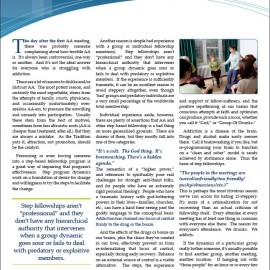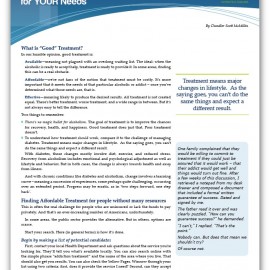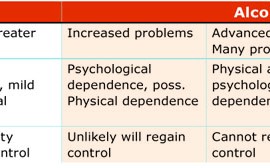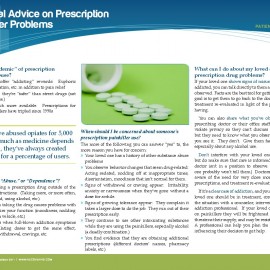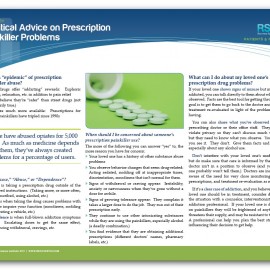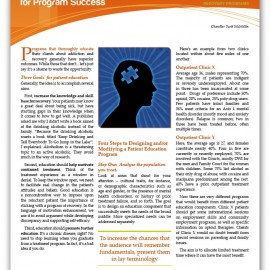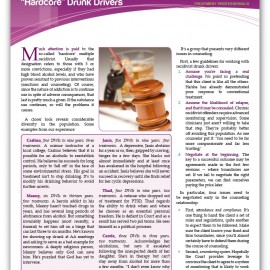Topics
Complex Case: The Devil We Know
There’s this big group we lump under the heading ‘precontemplation’. But in practice, there are precontemplators, and pre-pre-contemplators, and pre-pre-pre-pre-pre-contemplators.
Topics: client types and needs, clinical management, co-occurring disorders, treatment models
Different Levels of Treatment: Who Gets What
For the most part, if you are hoping that insurance, Medicare or Medicaid, or another third-party payor will help with–or pick up entirely–the costs of treatment, you’ll be running into ASAM criteria that control who gets what kind of treatment.
Topics: ASAM, assessment, diagnosis, inpatient treatment, long term treatment, outpatient treatment, types of treatment
Five Reasons to Hate AA
It’s easier to trash-talk the fellowships than think about quitting. But that’s not the only thing behind the negativity.
Topics: 12Step, Alcoholics Anonymous, alcoholism
Finding the Best Addiction Treatment for YOUR Needs
There’s a third dimension to making the decision about which treatment will offer the best chance for recovery: Matching the characteristics of a program to an individual’s particular needs.
Topics: finding the right treatment, getting help, referral, types of treatment
Evolution of a Disease Concept
A model generally supersedes other models not because it is perfect in every respect, but because it seems to explain certain aspects better than its predecessors.
Topics: addiction and the brain, alcoholism, clinical management, disease, disease model, physical effects, research, systems
Practical Advice for Parents: Prescription Painkiller Abuse
Many of us already have painkillers sitting on a shelf in the bathroom medicine cabinet, alongside the aspirin and the allergy meds. Sometimes they’re unused from prior medical or dental problems.
Topics: adolescent addiction, opioids, parent child conflict, prescription medications, recognizing addiction, signs and symptoms
Video: Practical Advice on Prescription Painkiller Problems
People have abused opiates for 5,000 years. As much as medicine depends on them, they’ve always created problems for a percentage of users.
Topics: addiction and the brain, addictive substances, alcoholism, opioids, pain, prescription medications, recognizing addiction, signs and symptoms
Practical Advice on Prescription Painkillers
People have abused opiates for 5,000 years. As much as medicine depends on them, they’ve always created problems for a percentage of users.
Topics: addiction medications, alcoholism, opioids, pain, prescription medications, recognizing addiction, signs and symptoms
Patient Education: Powerful Tool for Program Success
A key breakthrough for recovering clients: The realization that, while they cannot control their disease, they can do a lot about their own recovery.
Topics: clinical management, patient education, program development
Counseling Challenge: “Hardcore” Drunk Drivers
Repeat DUI/DWI offenders can pose tough challenges for treatment programs and counselors. The needs of the client and the demands of the legal system don’t always work together.
Topics: addicted offenders, client engagement and motivation, compliance and noncompliance, counseling skills, DUI/DWI, leverage



